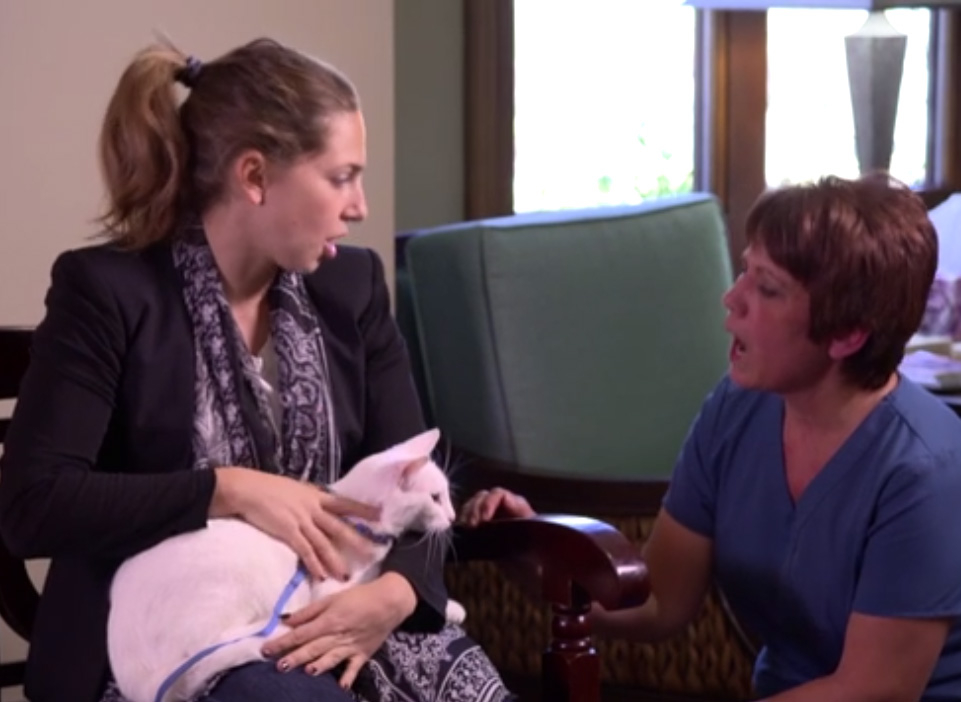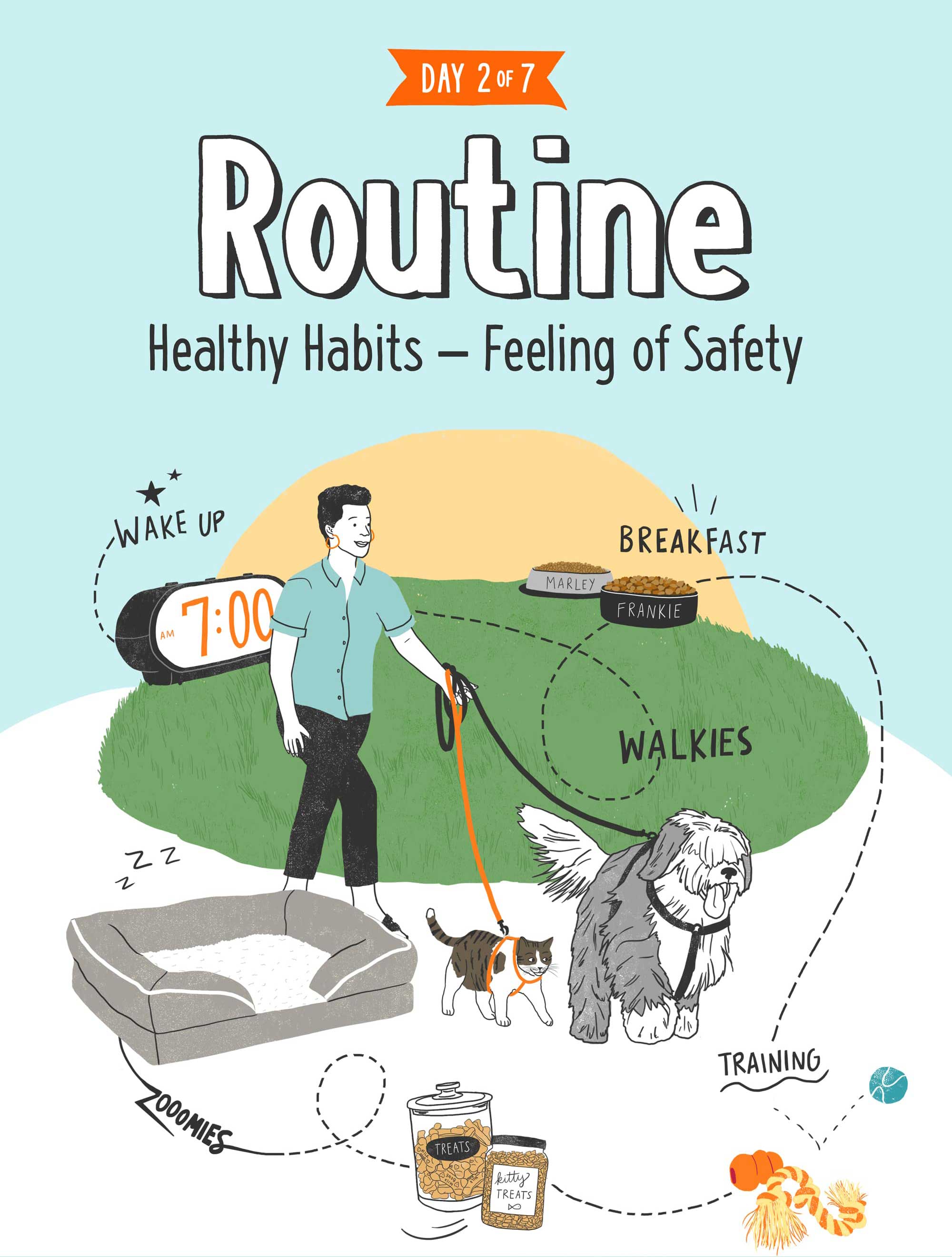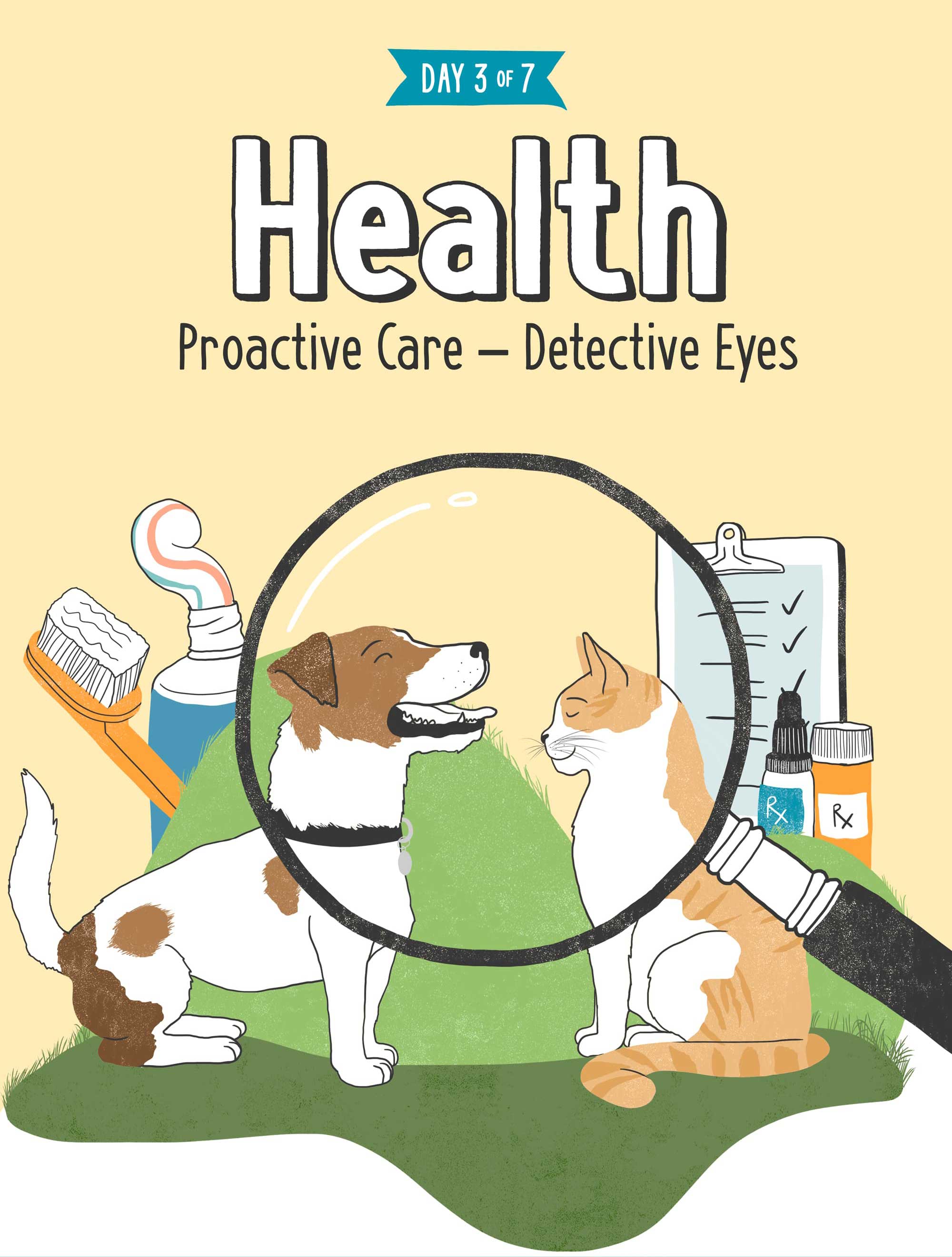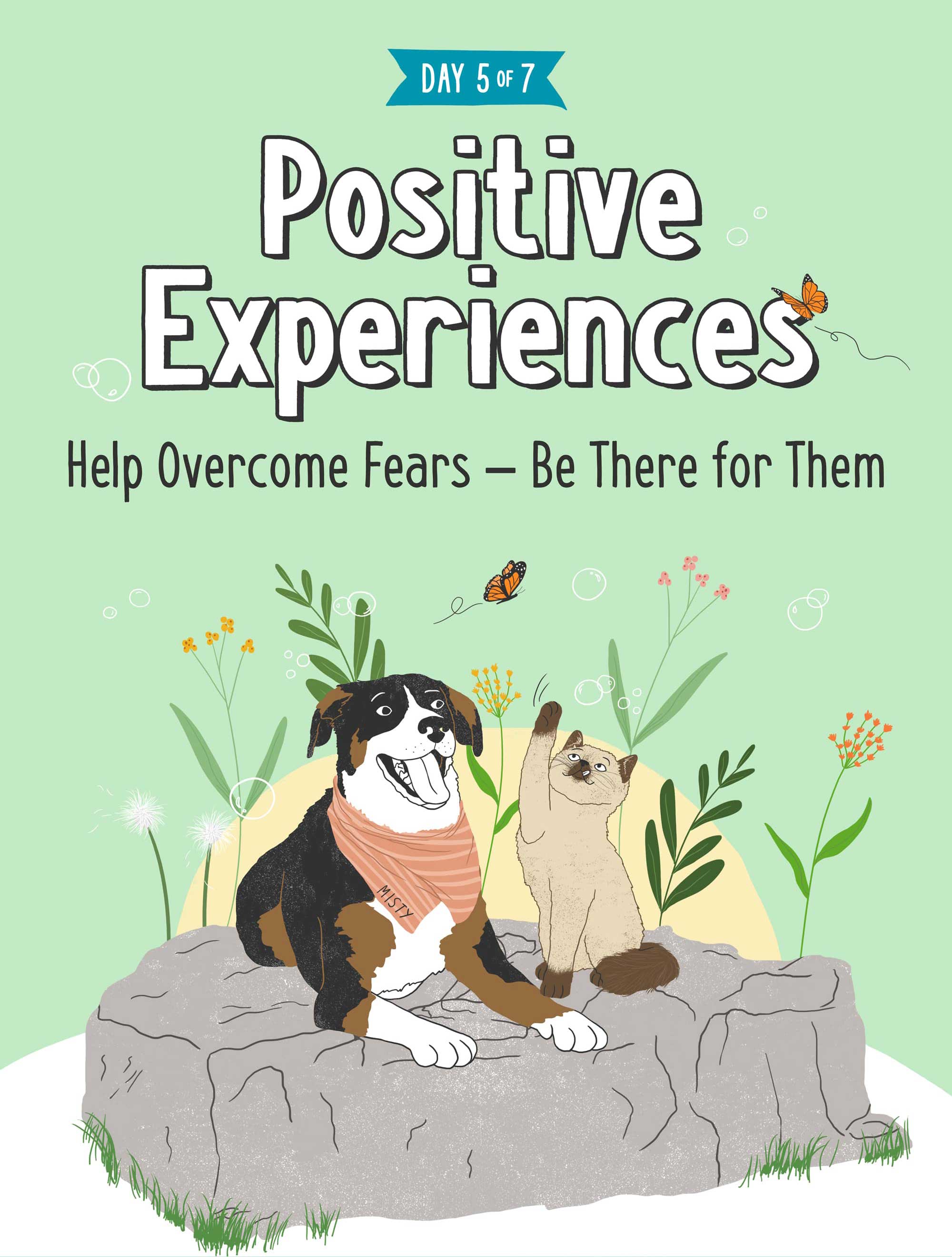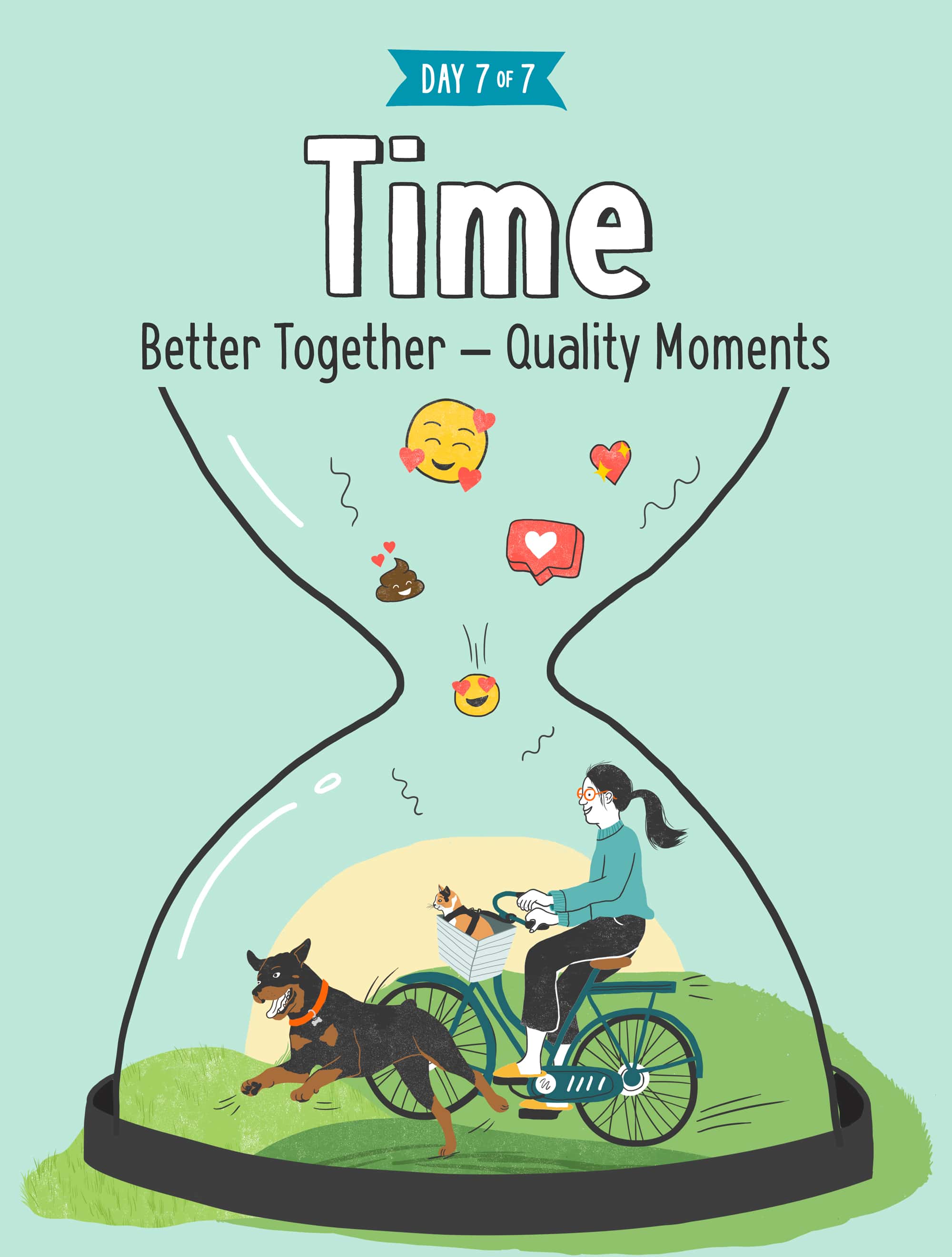HERO
New Survey Finds Spending More Time at Home Has Raised Americans’ Awareness of their Pets’ Mental Health
85% of pet owners reported a positive impact on their pets’ behavior due to increased time spent together during the pandemic
PARSIPPANY, N.J. — Most pet parents are aware, either consciously or subconsciously, that ‘the pet effect’ is real, meaning, pets contribute to our emotional, social, & physical wellbeing. But how many pet parents think about their pet’s mental health?
To better understand cat and dog owners’ interest in, awareness and treatment of their pets’ mental health, as well as the impact quarantine has had on pets, Zoetis Petcare (a U.S. business unit of Zoetis), in partnership with Ipsos, conducted a nationwide survey of over 1,300 Americans who have a cat or a dog.1 The majority of cat and dog owners reported seeing signs of mental health issues in their pets, highlighting the need for greater veterinarian support for the mental wellbeing of companion animals.
The survey found that as pet owners spent more time at home, they became better attuned to the mental health of their animal companions. More than half of pet owners reported becoming more aware of their pet’s mental state during lockdown, with 85% reporting the increased time together had a positive impact on their pet’s behavior.
main
main2
Highlights from the survey include:
Dog and cat owners are seeing signs of anxiety in their pets, but they’re not necessarily having their pets diagnosed by a veterinarian:
- Approximately four out of five dog owners have noticed at least one symptom of anxiety (such as clingy behavior or overshadowing, whining, barking, or howling when left alone or excessive chewing or licking of paws and tail), but only 24% have had their dog diagnosed by a veterinarian.
- 63% of cat owners have noticed signs of anxiety (such as overshadowing, hiding, and excessive vocalization), but only 16% have had their cat diagnosed by a veterinarian.
Despite low levels of diagnosis, pet owners are interested in helping minimize anxiety in their pets:
- 90% of pet owners reported taking steps to promote a more pet-friendly home, such as buying a soft bed or crate, providing adequate lighting and white noise, and offering an access door to the outside.
- About one-third of dog owners surveyed adopted their pet during the pandemic (29%) and these owners are more likely to schedule regular veterinarian visits, ensure their pets’ vaccines are up-to date, provide sufficient exercise/playtime, and offer regular praise/affection.
Rescue dogs and cats are more likely to display signs of mental health issues, such as noise and separation anxiety:
- Almost half (49%) of rescue dog owners have noticed signs of separation anxiety.
- 58% of rescue cat owners have noticed signs of trauma, with 25% noting separation anxiety specifically.
Post-pandemic separation anxiety is a top area of concern for pet owners:
- More than half of pet owners reported being worried about how their pets will react as they spend more time away, including going on vacation (53%) and returning to work (40%).
Additional survey findings include:
Pet owners tend to follow stricter routines for feeding than they do for physical exercise:
- 54% of dog owners follow a routine for feeding times, but only 26% follow a routine for walking times, and 17% for play time.
- 43% of cat owners follow a routine for feeding times, but only 10% follow a routine for play time.
Millennials are more likely than any other age demographic to seek help from a veterinarian for their pets’ mental health issues:
- 38% of Millennials have seen a veterinarian for a pet with general anxiety, compared to 31% of the general population.
- 40% of Millennials have seen a veterinarian for a pet that shows anger/aggression toward strangers, compared to 27% of the general population.
- 33% of Millennials have seen a veterinarian for a pet that shows anger/aggression toward other pets, compared to 26% of the general population.
As pandemic restrictions start to ease and Americans begin returning to life outside the home, pets may experience separation anxiety – so taking a proactive approach to pet mental health is more important than ever. To promote the mental health of pets, Zoetis Petcare has five proactive tips for pet owners:
- Trust: Pets look to you to keep them safe and happy. The more they learn from you, the more they learn to trust you. The goal here is to build up their "bank account" of positive experiences which in turn creates trust — so make it fun and rewarding!
- Train your pet: Keeping your pet active and engaged with consistent training improves their brain health and physical well-being.
- Establish a routine: Whether it’s sleeping, eating, potty time, or exercising – establishing a routine for your pet’s day helps them feel comfortable and safe.
- Manage anxiety triggers: You will want to avoid or reduce exposure to anxiety triggers until you can implement a treatment program. Work with your veterinarian to determine what is involved. In some situations, behavioral training may be required. In other situations, medications and behavioral training will be needed. As you help your pets manage their anxieties, they can become more confident in their environment.
- Provide good (and regular) healthcare: Because your pet can't speak, you are their most important advocate. Whether subtle or obvious, your pet's behavior offers clues about their physical health. This is why it’s important to schedule regular check-ups with your veterinarian, so they can help identify potential issues that may not be immediately obvious to you.
For more information to help pet owners manage their pet’s mental health, go to www.zoetispetcare.com/pet-mental-health
About Zoetis
As the world’s leading animal health company, Zoetis is driven by a singular purpose: to nurture our world and humankind by advancing care for animals. After nearly 70 years innovating ways to predict, prevent, detect, and treat animal illness, Zoetis continues to stand by those raising and caring for animals worldwide - from livestock farmers to veterinarians and pet owners. The company’s leading portfolio and pipeline of medicines, vaccines, diagnostics, and technologies make a difference in over 100 countries. In 2020, Zoetis generated revenue of $6.7 billion with ~11,300 employees. For more information, visit www.zoetis.com.
1 The nationwide study, conducted in partnership with Ipsos, consisted of an online survey of 809 dog owners and 510 cat owners from April 26 to May 2, 2021. The margin of error was +/- 3.1%.


